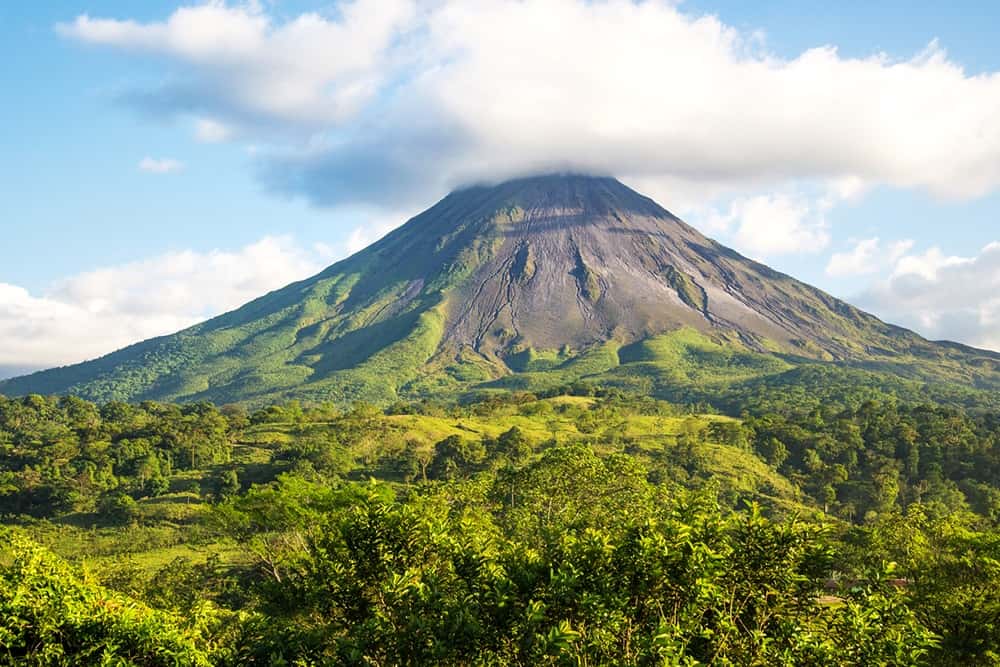Last weekend, Costa Rica presented its new model of inclusive and accessible social tourism, with activities aimed at older adults, youth, children, adolescents and people with disabilities.
The Tourism Board’s first Social Integrity Program was carried out in La Fortuna, San Carlos, where about 120 tourists were the first to participate in the experience. Among them were Yurusti High School students, guides and scouts, seniors, and a group of guests with disabilities, who all enjoyed a series of adventure activities.
All were transported by a chapulín (tractor) — which had a special cart with seats — to a village near the indigenous Maleku community.
Most of the participants enjoyed this type of recreation for the first time, said Alberto López, general manager of the Costa Rican Tourism Board (ICT).
Ricardo Ureña, coordinator of the ICT Social Tourism program, said Costa Rica is the first Central American country to implement more inclusive tourism.
“There are other countries like Honduras that intend to implement this type of tourism but still do not do it solidly,” he said. “That is why one of the most important elements is to attract them to the agreement of the International Social Tourism Organization (ILOS) and the Secretariat of Central American Tourism Integration (SITCA).”
The objective of the program is to urge that Costa Rican companies and organizations, whether tourist-focused or not, manage spaces within their operations that facilitate recreational activities aimed at these populations.
Ureña highlighted that the country was for the first time the headquarters of the Meeting of the Americas of Social Tourism — held from June 12 to 15 — which brought together more than 14 countries of the American continents focused on publicizing good practices of solidarity and sustainable tourism.
During this activity, 23 Costa Rican companies obtained their “seal of social tourism.”
Tourism for all people
The activities carried out in La Fortuna were managed by the Arenal Chamber of Commerce and Tourism, Anywhere Costa Rica and Arenal Mundo Aventura, companies that are part of the accreditation process carried out by the Social Tourism Program through the ICT.
Tadeo Morales, vice president of the Arenal Chamber of Commerce and Tourism, expressed his satisfaction that the destination has been selected to start the social tourism plan.
“We are a tourist center visited by more than one million tourists per year and endowed with excellent connectivity,” he said. “We have more than 60 parks and attractions, as well as 21 natural attractions, and we represent 10 communities that live directly from tourism. For these reasons, we have to include social tourism in our ecosystem of experiences in order to reach all populations.”
The Minister of Tourism, María Amalia Revelo, said that the Social Tourism Program is possible thanks to private initiatives that seek to improve the quality of life of the Costa Rican population.
Both the minister and the Second Vice President of Costa Rica, Marvin Rodríguez Cordero, stressed that promoting this model of tourism management makes it possible to fulfill the objectives of sustainable development and to “leave no one behind,” according to the vice president.
A more human Costa Rica
Several representatives of other countries that already implement social tourism, such as Chile, Brazil and Mexico, applauded Costa Rica’s commitment.
Francisca Retamal, from the National Tourism Service of Chile, said Costa Rica has enormous potential.
“The work they are doing, for example in Arenal Mundo Aventura, shows that they have made an integration with the people who live in the area, who have built their own hotels, their lodgings, and this is an opportunity for Costa Rica and for those of us who come here from abroad,” she said.
María Paz Lagos, adviser of Sernatur, projected successes for Costa Rica in this model for “the will of the entrepreneurs, the citizens and the public policy sector.”
“What I liked the most about the country are the people,” Lagos said. “I think Costa Ricans are good people, generous, kind, with a quality customer service system, concerned about tourists.
“The landscapes are wonderful, but the important thing is the human warmth that Costa Rica has.”

This story was originally published by Semanario Universidad on June 18, 2019. It was translated with permission by The Tico Times. Read the original report here.






